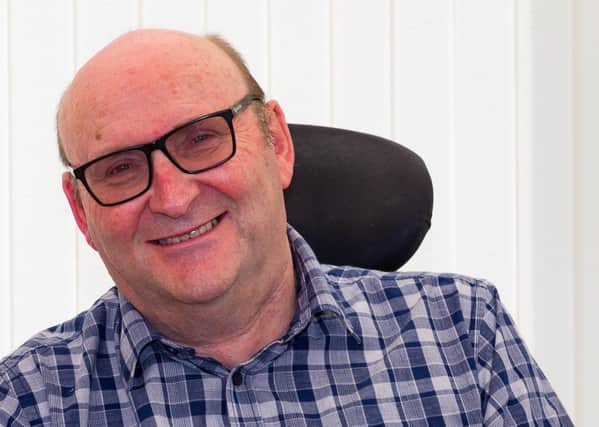DISABILITY TODAY: Looking towards to a brighter, more inclusive future


Selwyn Goldsmith, author of the 1960’s publication Designing for the Disabled, in 1967 interviewed wheelchair users in Norwich exploring their everyday lives and the difficulties presented to them. Research that led to the concept of the dropped kerb. Goldsmith realised the impact this can have on all users such as mothers with pushchairs and 15 dropped kerbs were subsequently installed in the city as an illustration of their worth. At this point the future for disabled people looked promising.
During the 1970’s and 80’s Britain was convulsed by a social and political revolution, costs rocketed and this saw the introduction of major public expenditure cuts to curb inflation with more focus on cost and value for money. Assessed by many with no personal experience of disability issues and the barriers faced by disabled people, momentum was lost. Add to this the general demeanour of disabled people and their tendency to not draw attention to themselves, we saw that by being ‘too quiet’ and ‘just getting on with it’ caused disability issues to slide from public awareness.
Advertisement
Hide AdAdvertisement
Hide AdThe 1990’s revived emphasis against disability prejudice and issues of inclusion with the Disability Discrimination Act of 1995. This Act brought renewed hope to millions of people feeling oppressed in so many ways but the subsequent introduction of the Equality Act in 2010 saw provisions of the DDA significantly watered down. A case of ‘two steps forward, one step back’.
I am reminded of the great quotation “Before you judge a man, walk a mile in his shoes”, and this is particularly relevant when it comes to disability.
Disability can strike anyone at any time whether by injury, illness or for a multitude of other reasons. It can have a devastating effect leading to the need for huge changes to lifestyle, relationship issues with family, friends and employers sometimes profound enough to rip asunder the very core of life. No one can confidently say that they will never become disabled during their lifetime and from my personal experience I clearly remember the day I was given the devastating diagnosis of Multiple Sclerosis. As a young man with a very young family, good career and a loving wife with my future before me, I was totally oblivious to the difficulties and obstacles people with impairment face every day of their lives. I was soon to learn. As MS tightened its grip, I experienced prejudice that focussed on my disability and not my professional abilities that remained unaffected. Enforced retirement triggered my determination to challenge the underlying inequality that existed in the 1990’s and can still be found today. The Eastbourne Access Group provided me with the vehicle to further my resolve to make a difference. One of my earliest campaigns was for more dropped kerbs around the town.
Could Coronavirus bring about the next step towards inclusivity?
Advertisement
Hide AdAdvertisement
Hide AdRenewal of community spirit, neighbourly unification, more understanding of other’s needs and a greater appreciation of everyone’s worth came to the fore showing the inherent compassion human beings have for their fellows. Enforced lockdown proved to be a great leveller introducing many non-disabled people to the experience of confinement and restrictions to their personal freedom.
Technological advances permitting remote health consultations, larger range of on-line shopping, home deliveries from a greater variety of retailers, restaurants and streaming theatres etc. rapidly became ‘the new normal’. Can we hope that services like these will continue and in an indirect way take a step towards levelling opportunity and ‘equality’ for all?
If many of these new services remain when Covid ceases to be headline news, will the newfound public appreciation of equality and inclusion stay with us? Is the promise of a brighter, more inclusive future with us again? I certainly hope so.